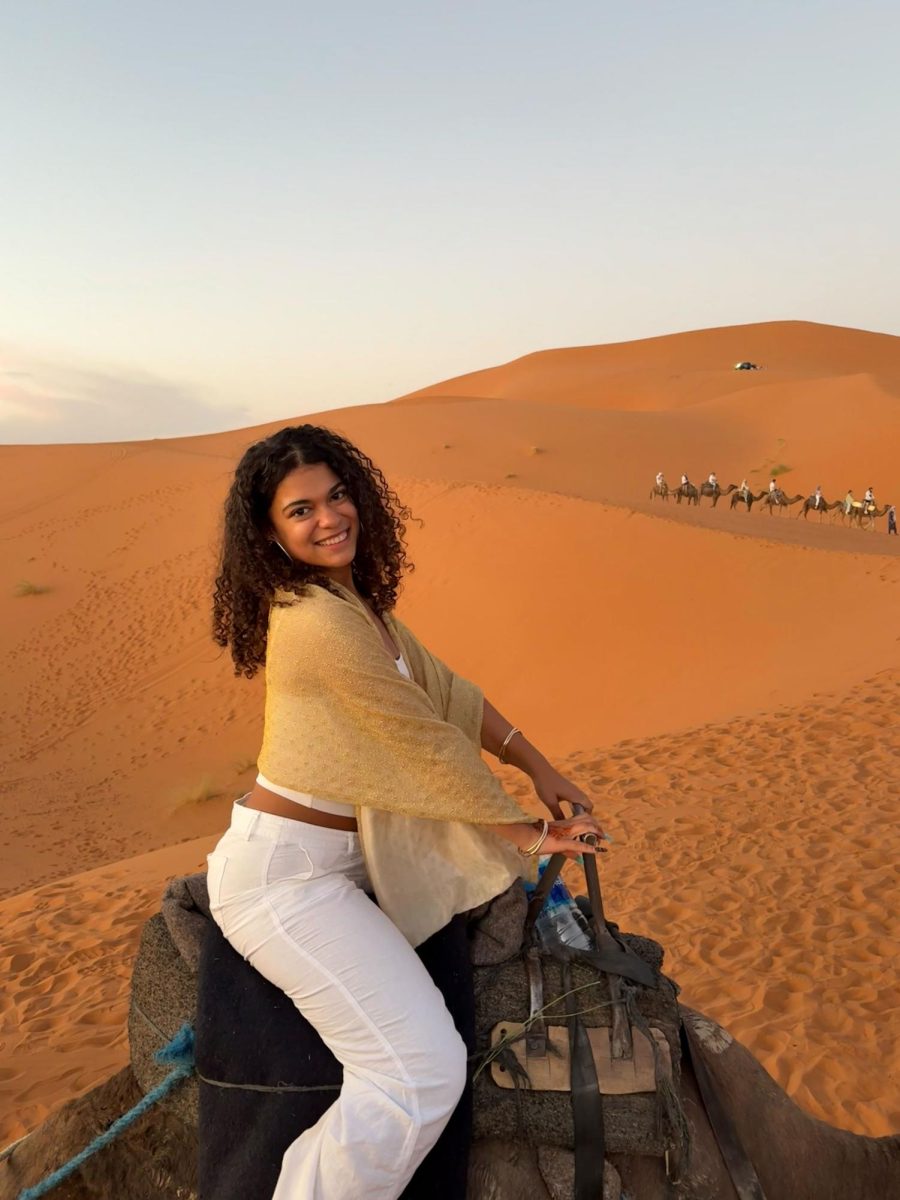With St. Joe’s students isolated to abide by COVID-19 protocols, chances to connect with fellow students are limited. Each week, The Hawk will offer conversations with various student leaders to help the community get to know them and their organization.
This week’s Q&A is with Maddie DeMarco ’22 and Kayla Evans ’23, co-presidents of the Women’s Leadership Initiative (WLI).
DeMarco is from Glen Mills, Pennsylvania. After graduation, she is planning to continue her education at St. Joe’s with the 4+1 M.S. in the Public Policy Program.
Evans is from Baltimore, Maryland, and wants to pursue a career in law and social justice after graduating.
What would people be most surprised to learn about WLI?
KE: We are an activism-based club and a professional development space, so I think people often view WLI as this super luxurious and prestigious organization. In reality, I’m just this girl with a bunch of tattoos who doesn’t have a filter. People are surprised to see me. I think that’s the whole point. We need more representation throughout campus, and that’s why I accepted the position; because I knew that as a Black woman, I wanted to be in WLI. I wanted other Black women on campus to know that this club isn’t just about white feminism. It’s about building a coalition amongst each other through all of our identities. You don’t have to be a white girl trying to take down patriarchy. You can just be a woman of anything. We all fight together.
What impact does WLI have on the St. Joe’s community?
MD: A huge impact. On a personal level, I’ve learned professional development skills I never would have known if it weren’t for going to WLI’s monthly meetings. As for general members, WLI provides services that they wouldn’t usually learn about, professional development skills, like how to navigate the world of careers and internships, while also honing in on the topic of social justice and having hard conversations and being a useful ally. WLI does an excellent job of balancing both of those pillars in our mission, so it impacts the community in that way.
KE: WLI catapults women in their careers. It creates an amazing network. The work of WLI is so strong, and we have so many alumnae that are willing to come back and give us advice. They are willing to offer internships and referrals and help us when we graduate. It’s really about helping our club members to navigate what’s next and find their place in the professional world. WLI is an amazing networking field and an amazing liaison between college and real life. It sets people up to have relationships in different sectors that they really wouldn’t have without WLI.
How does WLI create a safe space for women on campus?
MD: It’s definitely different given the times, but I would say pre-COVID, we created a literal space for women on campus at the Women’s Center for people to feel included and safe. During times of Zoom, we continue to have a virtual space where people can come on and chat about their day and explain what’s going on and ask questions. We’ve created a welcoming environment and transitioned pretty smoothly to being online. It’s not the same, but still, a lot of it is our executive board and our faculty advisors and being so welcoming.
KE: If you are a woman on campus, come to the Women’s Center. There are couches and a TV and snacks meant for us. Sometimes being a women in day-to-day life is taxing, and sometimes it’s nice to take a seat. Pick your feet up and talk to some other woman about life. It’s nice to decompress. I also think WLI does a fantastic job at making people not feel ashamed to claim their womanhood or their feminism, or being a feminist in general. This is not a man-eating club. This is just a women’s empowerment club. The vision and narrative often get misconstrued, but WLI does a great job of making people feel like it’s okay to be proud of being a woman. You should be proud of it, and you should embrace it.
How would you encourage men at St. Joe’s to be active feminists?
KE: A really good way for men to be active in feminism is to go to events, be involved in classes and organizations that take feminism as a priority. Definitely any of our events, men are welcomed to come. There are many classes on campus, like in the political science department, that deal with intersectionality. Those are amazing courses to take as a man on campus because it teaches you so much about the intersections of identity and how much of a struggle it is for women and women of color in the world.
After you graduate, what do you hope to leave behind with WLI?
MD: A continued legacy of hard work that everyone has left before me of empowerment and dedication to the organization and the community as a whole.
KE: I want to leave behind a legacy of inclusion and sisterhood. I think a lot of times, WLI is seen as this super professional organization. At the end of the day, we’re just women in college, trying to figure out what we’re doing. So sisterhood and building coalitions and building unity amongst each other is a big deal for me.














































